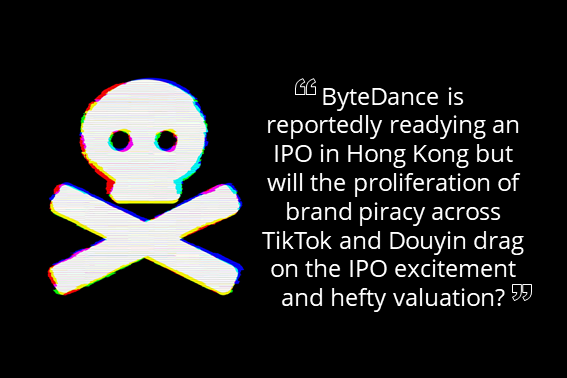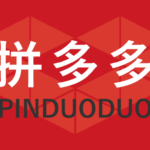Top 5 Brand Piracy Risks On TikTok & Douyin

TikTok has fast become the killer app dominating the screen time of Gen Z. This user-generated short form mobile video app is reportedly valued at $75 billion, with over 800 million combined downloads from Google Play and the Apple App Store and over 600 million monthly active users in China alone. Add another 120 million MAU in India along with rapid growth in Japan amongst other countries and parent company ByteDance owns the only social platform with reach into all major digital economies.
Douyin (the Chinese name for TikTok) is not the only smash hit app ByteDance owns, with aggregator app Toutiao providing the only real competition to Tencent for consumption of news content amongst the younger generation in China. ByteDance has already displaced Baidu into forming BAT 2.0 (ByteDance, Alibaba and Tencent) and is reportedly readying an IPO in Hong Kong. With Alibaba postponing a secondary listing in Hong Kong due to regional unrest, the choice of market is not without risk. Furthermore, ongoing data protection concerns and the proliferation of brand piracy across TikTok and Douyin could drag on the IPO excitement, along with the hefty valuation; replicating the initial market response to both Alibaba and Pinduoduo before.
As the digital economy becomes more mobile-led, the line between media content and ecommerce companies is rapidly vanishing. Rightsholders and infringers are increasingly focusing on the platform’s global reach for commercial activity. Infringements are rife (and growing in scale) on TikTok and Douyin. Both apps must be monitored independently, with data processed accordingly. A fundamental mistake often made is to only monitor one version of the app. Whilst the core functionality is the same across both versions, user culture differs greatly, and the content is not cross-accessible. Therefore, localised knowledge of the market is required. There are numerous brand piracy risks rightsholders must monitor for, including: adverts promoting counterfeits by physical stores; adverts from factories which produce counterfeits; hashtag abuse; WeChat redirection; and live streaming.
1) Adverts Promoting Counterfeits By Physical Stores
Ecommerce is shifting towards integration by connecting online and offline experiences. Physical stores are not oblivious to this trend and are using digital channels to drive footfall to their store. Infringers are appropriating the reach of Douyin and TikTok by using the app as an interactive online catalogue to promote counterfeits. Retailers openly advertise their store and counterfeit items in relative impunity compared with the heavily regulated ecommerce platforms.
2) Factories Too
A worrying trend of factories directly advertising on Douyin has started to emerge. Fortunately, this tactic provides a rightsholder with all the information necessary to detect infringements, arrange a test purchase and create a case for local law enforcement to action. The factories are openly including their registration license in videos or profile bio.
3) Hashtag Abuse
Hashtags are vital to discovery on all on social platforms. With rightsholders ignoring these newer platforms, especially western companies, infringers are freely accessing branded hashtags to advertise knock-offs. The influence of TikTok on purchasing decisions is still undervalued by many brands, creating space for infringers to exploit within the digital supply chain.
4) WeChat Redirection
Douyin users without the ecommerce features apply another common tactic – adverts showcasing counterfeits combined with a WeChat ID. Potential customers are directed to WeChat to discuss and complete the transaction. Chinese consumers are very familiar and comfortable with this process.
5) Live Streaming
TikTok and Douyin users can take advantage of the live stream function, which bypass the 15 second video clip limit. Live streams are very popular on both apps and streaming within ecommerce is increasingly popular. Counterfeiters on TikTok and Douyin use influencers and live streaming to quickly generate large volumes of traffic to their sales channel. This approach mirrors tactics employed by infringers on Instagram. With high volume sale periods such as Double 11 in China and Black Friday in the US condensing significant chunks of ecommerce activity into a few days, the potential loss of sales from these short bursts of brand piracy represents a substantial risk. Live streaming requires live monitoring.
Check out our how-to guide for reporting copyright and trade mark infringement to Douyin:



